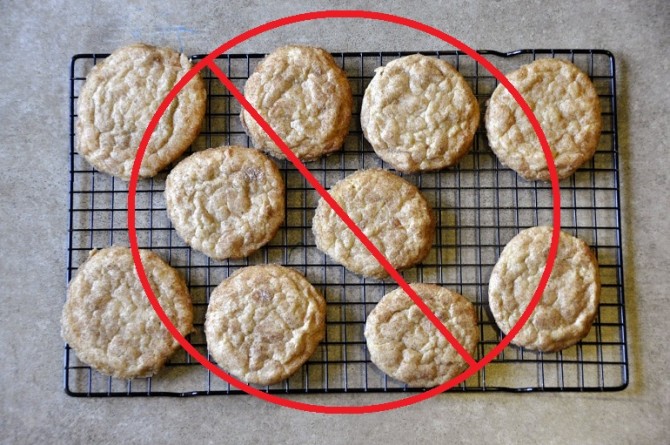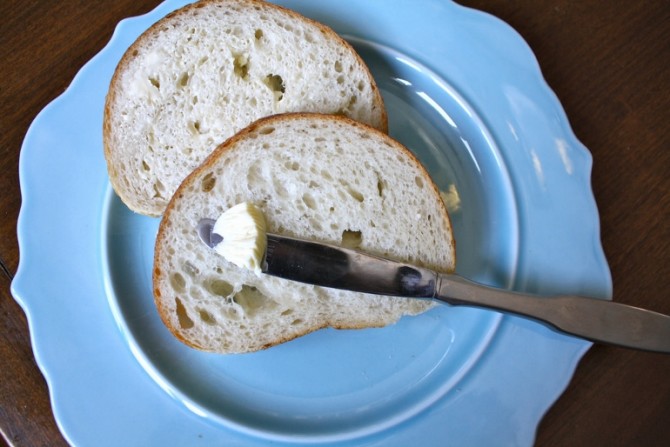If you’ve been on the internet for any length of time, you have probably come across at least one article that’s told you what you should or shouldn’t eat. Sometimes it’s the seven foods you should never put in your mouth, or the five things you shouldn’t eat after a given age.
I’m talking about the articles that make you want to cry when your favorite food is number three on the list – the ones that make you feel guilty the next time you reach for a certain item in your pantry. They tell you what to avoid and list off the fates you will meet if you don’t heed their advice.

Gif courtesy of giphy.com
I get that the information in these types of suggestions may be based on scientific studies (emphasis: might), but at the same time, I personally just can’t justify giving up bagels or ice cream or something utterly delicious for the rest of my life.
Many of these gimmicks use the strong word “never” in their warnings. I’m here to tell you that I think “never” is absolutely bogus. And of course, like any good person with a chip on her shoulder, I’m going to tell you why.

Photo by Emma Delaney, edited by Emma Shellhamer
Let’s take white bread as an example. White bread is the demon of the wheat; everyone shuns it, no matter what age or body build they are. But here’s the thing: if you eat a sandwich made with white bread every once in a while, I’m prreeeetty sure it won’t take you out (even though that’s what people make it seem like it will do).
In the grand scheme of your life, a couple slices of white bread on a Thursday afternoon is far from a criminal offense. Yeah, your friend might give you a weird look when you specifically ask for white instead of your usual whole grain, but who cares.
Live it up. Eat your white bread. Unless you’re allergic to some of its ingredients, two slices will not leave your diet in ruins.

Photo by Abigail Wilkins
Moderation – or, reasonable quantities and frequencies – is the golden word of eating. This is your new favorite word.
Moderation is how I justify dessert. Moderation is why I think it’s okay to slurp down that venti double mocha caramel frappuccino with whip and a cookie straw every so often. Moderation is the answer to all of my food anxieties, especially the ones caused by “never eat these eight foods” fads.
If you eat white bread every day, some may say you’re better off changing your diet. But if you eat it, say, once a week, I believe it’s hardly going to make a significant impact on your overall well-being.
And it works the same way with health foods: if you eat crap all week and then make a salad, those greens really aren’t going to do much for your bod.

Gif courtesy of giphy.com
My food philosophy is that as long as you make wise decisions about the portions and frequencies of those “bad for you” foods, you can enjoy a diet that includes – and even celebrates – the sweet, carby or salty snacks you would hate to go without. I go with moderation instead of deprivation, and it seems to be working out for me just fine.
Next time you see something on the web that tells you what you can and can’t eat, remember that one random girl on the internet who reminded you that one meal won’t make you gain weight, just as one meal won’t make you lose any.
It’s my lifestyle and my diet in their entirety that determine my health (not my occasional late night snacking habits), so try going for the sundae (cause I am) and practice moderation like you get paid for it.

